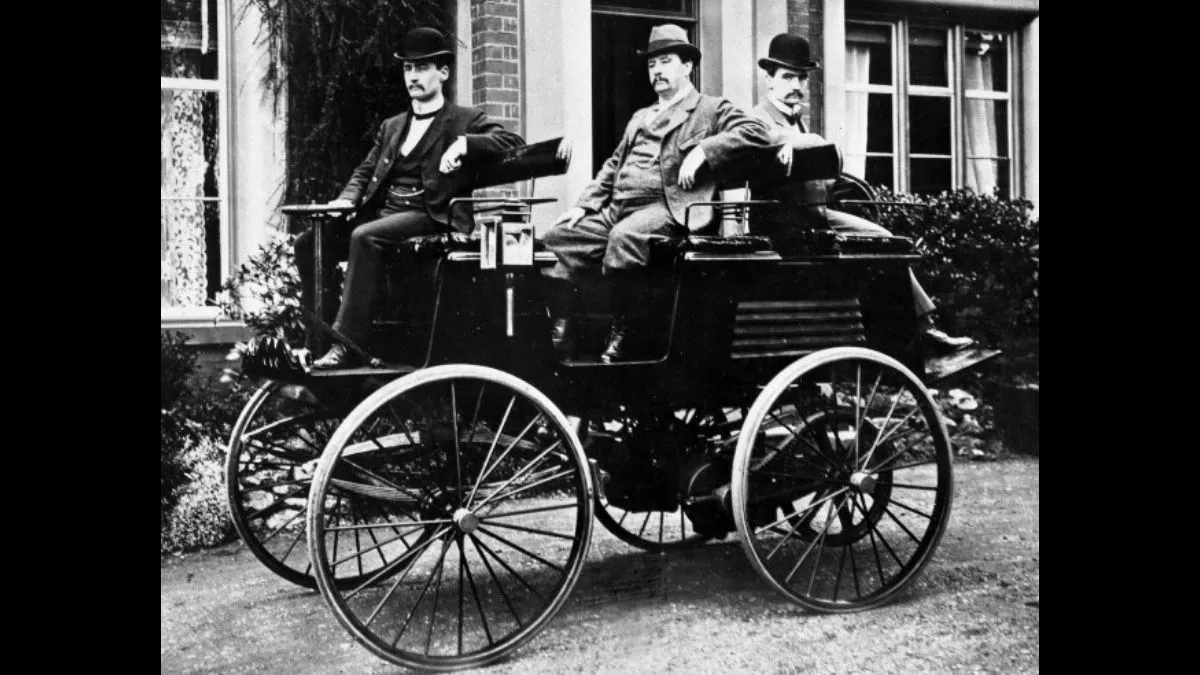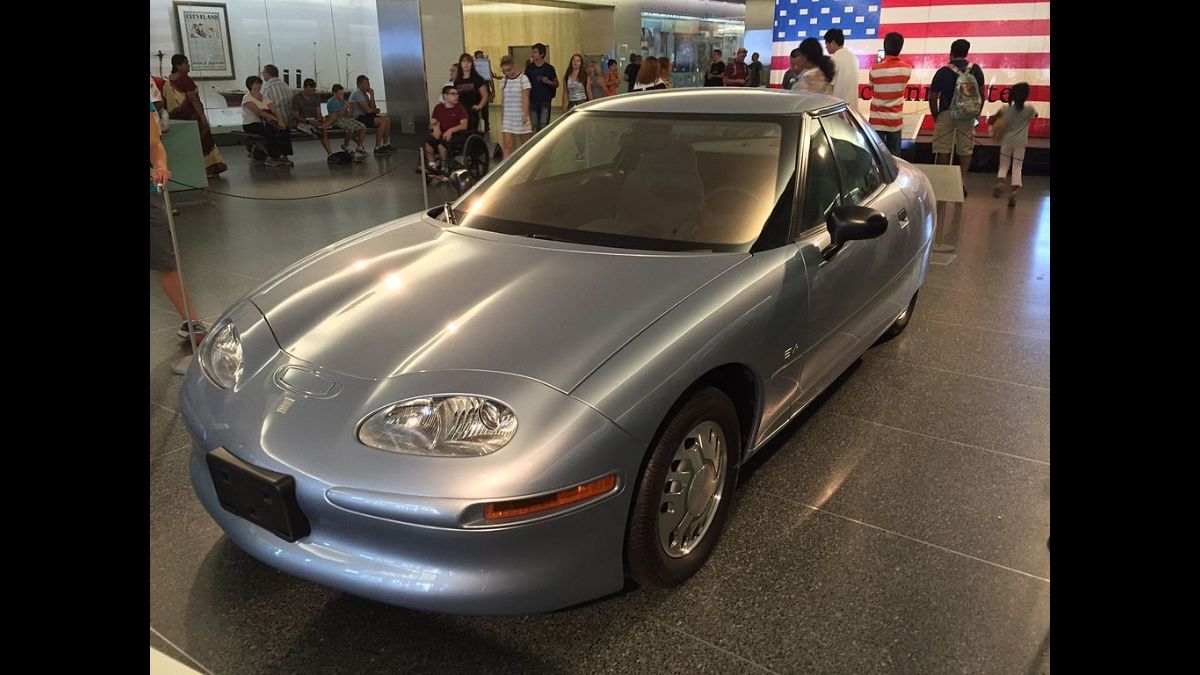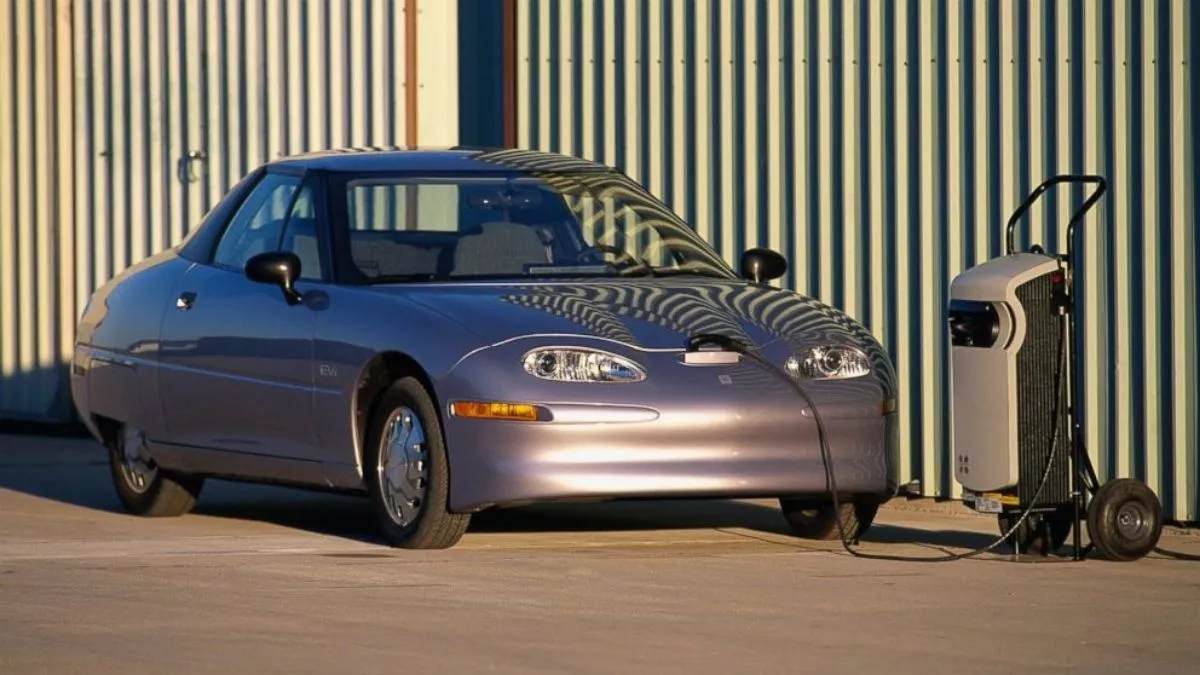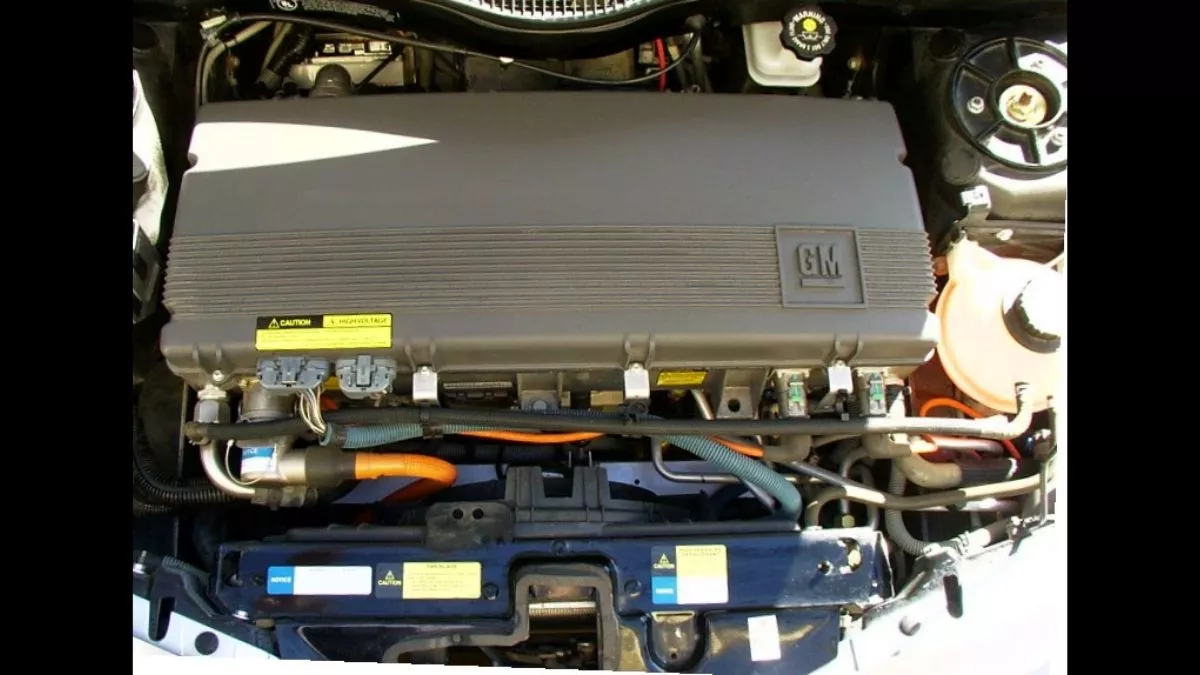There might be a dispute on exactly which is the first modern electric car? Many people believe that it’s a Tesla or the Nissan Leaf. However, as per the report of Interesting Engineering, General Motor’s EV1 is the first modern-age electric car that was launched in 1996.
The history of electric vehicles is quite complex and spans through decades. It might be surprising for you to know but electric cars came into existence before combustion cars. In 1834, Professor Sibrandus Stratingh of the Netherlands, along with his assistant, Christopher Becker, made the first electric car. It was just a four-wheeled cart powered by non-rechargeable battery cells.
In the following years, many people tried their hands to build an electric car. According to Donut Media, in 1891, William Morrison from Iowa finally made the first successful electric car in the United States.

According to Wikipedia, it had a top speed of 23 km/h. Since then, many automakers and scientists came up with several inventions related to electric vehicles. However, the first modern electric car was made by General Motors (GM).
Also Read: How Do Electric Cars Work?
Meet The First Modern Electric Car
General Motors EV1 was the first mass-produced electric car of the modern world. Launched in 1996, it was a two-door subcompact coupe with an electric drivetrain.

The GM EV1 was based on the ‘Impact’ electric concept car that was revealed at the LA Auto Show in 1990 by the company. After receiving praise and a positive response from the experts, the company decided to mass-produce the electric concept car.
Finally, the first model hit the market in 1996. Three years later though, the production of this electric car was stopped by the company in 1999.
Technical Specifications Of First Modern Electric Car
Battery Configuration of GM EV1
Unlike current electric vehicles, which use Lithium-ion battery packs, the first generation GM EV1 was powered by a 16.5 kWh Lead-acid battery provided by GM’s Delco Remy division. As per the sources, these electric batteries provided a range of 60 miles per charge as per EPA norms at the time.
Later in 1999, the second generation EV1 adopted a new Panasonic-branded 18.7 kWh lead-acid battery. Panasonic batteries improved the electric range to 100 miles.
Soon after adopting the second batch of batteries, the automaker decided to use a new 26.7 kWh NiMH (Nickel Metal Hydride) battery. The NiMH battery not only improved the range but also reduced the overall weight of the vehicle.
With the new NiMH battery pack, the weight of the vehicle reduced to 1319 kg from 1400 kg (with Lead-acid batteries).
Additionally, these NiMH batteries had a higher energy density, providing an electric range of 160 miles. Apart from this, the company also had plans to use lithium-ion batteries. But at that time, Li-ion batteries were in the developmental phase.
Dimensions And Aerodynamics

As mentioned earlier, EV1 was a two-door coupe closed-body style vehicle. It measured 4310 mm in length, 1770 mm wide, and had a height of 1280 mm.
GM EV1 was not only the first electric vehicle of the modern era, but it was also among the first to use aluminum for its chassis.
Additionally, GM used plastic instead of metal for the construction of body panels, and magnesium alloy wheels to reduce its overall weight.
Moreover, GM EV1 had a very low drag coefficient of just 0.19 that contributed to improving its efficiency.
Powertrain

The GM EV1 was a front-wheel-drive electric car with a single-speed reduction transmission system. Similar to the electric cars in 2020, the first “modern” electric car also had a three-phase AC induction motor. The electric motor could produce around 137 BHP and a peak torque of 149 Nm.
Safety
Considering the time period, GM outfitted the EV1 with all the necessary safety features. EV1 had modern features like an Anti-lock braking system (ABS), traction control system, low-rolling-resistance tires, and much more.
Moreover, it received an overall NHTSA safety rating of three stars.
Downfall Of The First Modern Electric Car

In 2003, the company officially ended the EV1 program. However, the production had already stopped in 1999 because the car was a commercial failure. The electric car was not as successful as the other conventional vehicles of the company.
However, the automaker did try to make the best use of the technology available to them.
After this, Tesla came into existence in 2003. Five years later, Tesla launched its first electric car, the Tesla Roadster, powered by lithium-ion batteries. Tesla is the company that has given new life to electric vehicles. On June 22, 2012, Tesla changed the EV market with the launch of Tesla Model S and the rest is history.
The post Here’s Everything You Need To Know About The First Modern Electric Car appeared first on Fossbytes.
Here’s Everything You Need To Know About The First Modern Electric Car
read more
No comments:
Post a Comment